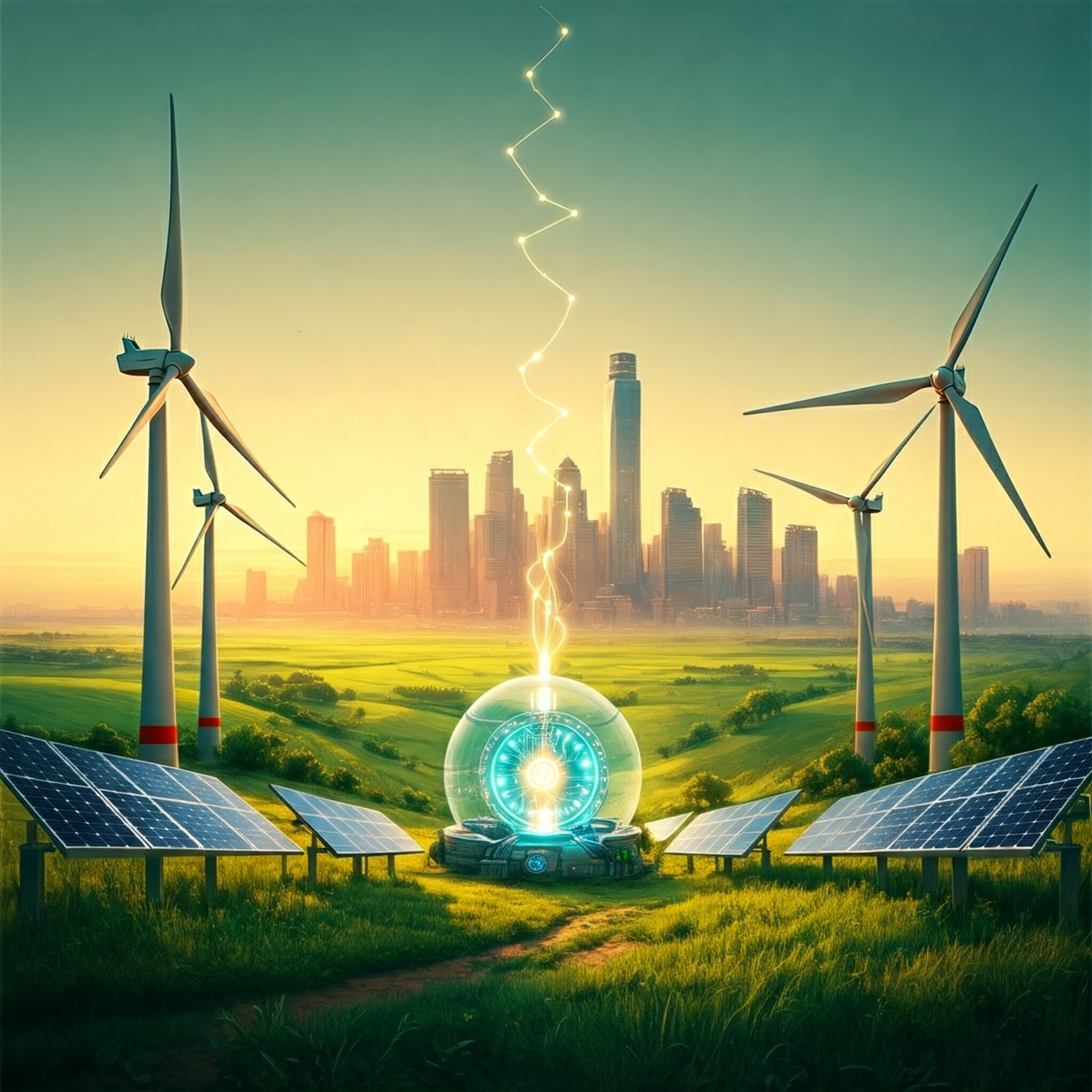Generation
Definition
Generation refers to the process of producing or creating something, such as energy or ideas. It also denotes a group of individuals born and living around the same time, sharing cultural or historical experiences.
Parts of Speech
- Noun
Pronunciation
American English
- IPA Pronunciation: /ˌdʒɛnəˈreɪʃən/
- Respelling: jen-uh-RAY-shuhn
British English
- IPA Pronunciation: /ˌdʒɛnəˈreɪʃən/
- Respelling: jen-uh-RAY-shuhn
Etymology
The word "generation" originates from Latin "generatio," derived from "generare," meaning "to beget" or "to produce." It entered Middle English through Old French, retaining its meanings of creation and lineage.
Derivatives
- Generational (adjective)
- Generate (verb)
- Generator (noun)
- Regeneration (noun)
- Generative (adjective)
Synonyms
- Creation
- Production
- Lineage
Antonyms
- Destruction
- Termination
- End
Usage
The term "generation" is commonly used in social, technological, and biological contexts. For example, "The new generation of smartphones has advanced features," or "He comes from a long generation of farmers."
Related Terms
- Genealogy: The study of family history and lineage.
- Innovation: The act of creating or generating new ideas.
- Heritage: Cultural or familial traditions passed down through generations.
Detailed Definitions
Noun
- The act or process of producing something: Refers to creation, such as energy or ideas.
- Example: "The company focuses on the generation of renewable energy."
- A group of individuals born around the same time: Refers to a cohort sharing similar cultural or historical experiences.
- Example: "The millennial generation has grown up in the digital age."
- A stage in the development of products or technologies: Describes iterations or advancements.
- Example: "This is the third generation of the software."
generation



🇨🇳 Mandarin Chinese
- 世代
- IPA: /ʂɨ˥˩ tai̯˧˥/
- English Respell: shìdài
- 产生
- IPA: /ʈʂʰan˥˩ ʂɤŋ˥˩/
- English Respell: chǎnshēng
🇮🇳 Hindi
- पीढ़ी
- IPA: /piːɽiː/
- English Respell: peedhee
- उत्पत्ति
- IPA: /ʊtpʌti/
- English Respell: utpatti
🇪🇸 Spanish
- Generación
- IPA: /xeneɾaˈθjon/
- English Respell: generación
- Producción
- IPA: /pɾoðukˈθjon/
- English Respell: producción
🇫🇷 French
- Génération
- IPA: /ʒeneʁasjɔ̃/
- English Respell: génération
- Production
- IPA: /pʁɔdyksjɔ̃/
- English Respell: production
🇦🇪 Arabic (Modern Standard)
- الجيل
- IPA: /ʔalʒiːl/
- English Respell: aljeel
- توليد
- IPA: /tawliːd/
- English Respell: tawleed
🇧🇩 Bengali
- প্রজন্ম
- IPA: /prod͡ʒonmɔ/
- English Respell: projonmo
- উৎপাদন
- IPA: /ut̪pad̪ɔn/
- English Respell: utpadon
🇷🇺 Russian
- Поколение
- IPA: /pəkɐˈlʲenʲɪje/
- English Respell: pokoleniye
- Производство
- IPA: /prəɪzˈvotstvə/
- English Respell: proizvodstvo
🇵🇹 Portuguese
- Geração
- IPA: /ʒeɾɐˈsɐ̃w̃/
- English Respell: geração
- Produção
- IPA: /pɾoduˈsɐ̃w̃/
- English Respell: produção
🇮🇩 Indonesian
- Generasi
- IPA: /gɛnɛrasi/
- English Respell: generasi
- Produksi
- IPA: /produksi/
- English Respell: produksi
🇩🇪 German
- Generation
- IPA: /ɡʲeˈneːʁaˌt͡si̯oːn/
- English Respell: Generation
- Produktion
- IPA: /proˈdukʲt͡si̯oːn/
- English Respell: Produktion
🇯🇵 Japanese
- 世代
- IPA: /sedai/
- English Respell: sedai
- 生成
- IPA: /seisei/
- English Respell: seisei
🇻🇳 Vietnamese
- Thế hệ
- IPA: /tʰe˧ˀ˨ʔ he˧˧/
- English Respell: thế hệ
- Sản xuất
- IPA: /sən˧˧ sʷaːt̚˧˧/
- English Respell: sản xuất
🇰🇷 Korean
- 세대
- IPA: /se.dɛ/
- English Respell: sedae
- 생성
- IPA: /sʰʌŋ.sʰʌŋ/
- English Respell: saengseong
🇹🇷 Turkish
- Kuşak
- IPA: /kuʃak/
- English Respell: kuşak
- Üretim
- IPA: /yrɛˈtim/
- English Respell: üretim
🇵🇰 Urdu
- نسل
- IPA: /nəsl/
- English Respell: nasl
- پیدا کرنے
- IPA: /pɛɪdaː kəɾnɛ/
- English Respell: paida karne





